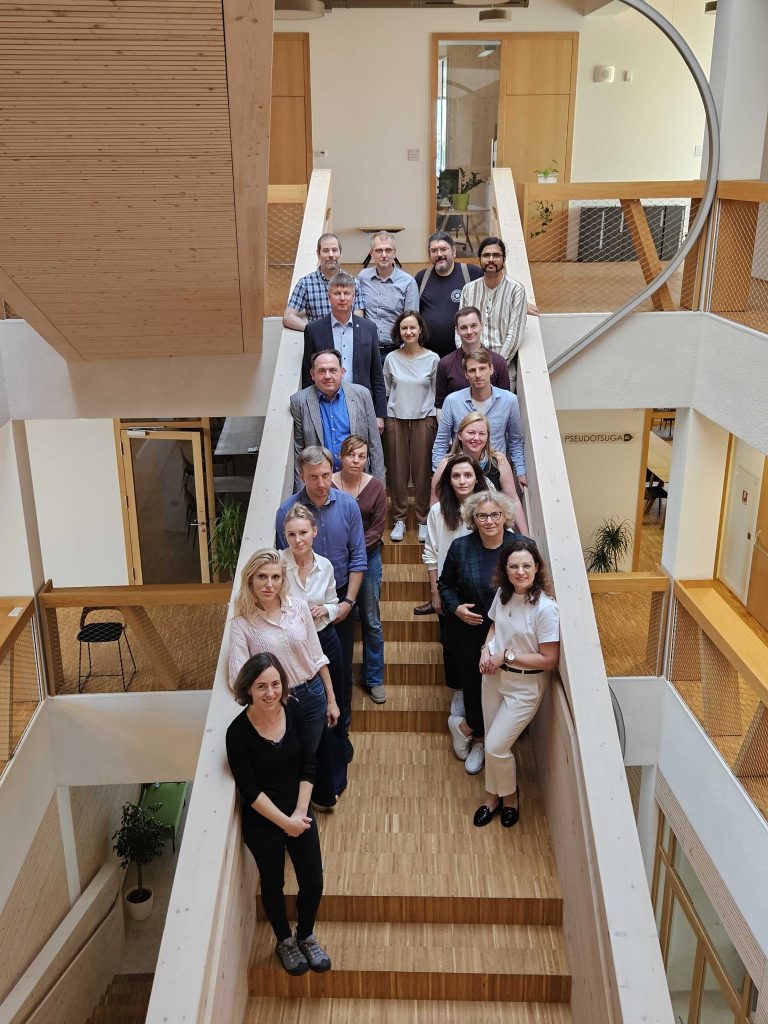
October 22, 2024


Alan Organschi, a principal and partner at Gray Organschi Architecture and Director of the Innovation Labs at the Bauhaus Earth; InnoRenew CoE International Conference 2023, “Interdisciplinary solutions for sustainable buildings” keynote speaker
I was born and raised in a small town in New England in the US Northeast. It was a pretty rural place at the time, a hilly, forested region dotted with small farms and villages. After studying and working in different places, mostly American and European cities, I settled back down in New Haven, Connecticut, no more than an hour from where I lived as a kid. That’s where my wife and I have an architecture and design/build practice and where I teach at the Yale School of Architecture. Over the past two years, through my work at Bauhaus Earth, I’ve been spending a quarter of the year in Berlin and traveling a good deal around Europe and in Asia as we develop Lab partnerships with global colleagues involved in developing regenerative building solutions to answer rapid global population growth and urbanization and its deleterious environmental effects.
I trained as a carpenter and cabinetmaker before going to university where I majored in political history. Because my college was next door to a renowned art and design school, I grabbed the chance study in furniture design and architecture studios there. Whatever alchemy was stirred up by those parallel experiences showed me a formula in which my vocational skills could combine with my intellectual interests to create a range of opportunities along a rich career path. I think that constitutionally I have trouble separating and compartmentalizing the processes of thinking and making, the synthetic and the analytic. One informs the other.
By inclination and temperament, I’d say I’m a builder. But I tend to chase down (perhaps a little obsessively) answers to the nagging questions that inevitably arise in the conception, design, and implementation of a building. And I try to let my parallel interests in the natural and social sciences (and my concerns about the environmental and social degradation we incur along the way) inform those questions. I guess, in an ideal world, that makes me an architect.
The richness of it. The different places, cultures, ecosystems in which I get to work; the incredible colleagues from whom I continually learn; the deep tactile and technical satisfaction of applying material in both novel and traditional form across a range of building assemblies, types, and scales; the reward of a building well-built, a place improved upon, and the experience of the people who see and use it anew. It’s a wonderful kind of concoction in which the parts mix to create an inexplicable but totally delightful whole.
In the broadest sense, the concern that everything we do as builders has environmental and social impact and that most often those consequences are not immediately (or ever) visible. Every resource we call upon as producer/consumers has some unintended effect from which we’re mostly shielded (at worst by our own indifference, but mostly, I think, because of the distances our materials cover, the depths of our investment in outmoded and ineffective systems of building delivery, the complexity of global commerce and the vagaries of local and regional governance, etc.) At the closer range, these broad, externalities create confusion. And that results in frustration and inaction among truly well-meaning actors in the building sector (manufacturers, architects, engineers, clients, policy makers, developers…), people who really care about building sustainably but are conflicted about our real agency in addressing concurrent crises of planetary proportion.
Through my role on the faculty at Yale, as in my international work with Bauhaus Earth, I’ve had the opportunity to work closely with scientists, such as colleagues in climate and ecosystem science or industrial ecology, along with the implementers of policy and practice that arises from current scientific and technical research—loggers, manufacturers, builders. Through insights drawn from both that scientific research and those processes of production, I’m beginning to see a way in which ecological health, climate restoration, biodiversity enhancement, social enfranchisement and material innovation and manufacturing could be synergistic and reciprocally sustaining. I guess that’s to say that the unavoidable and inevitable activity of human consumption and production could be more than mitigated; that it could become a force for the restoration and regeneration of natural systems and their ecosystemic balance, an essential component of a healthy terrestrial metabolism rather that a dire threat to it. No single scientist or scientific discovery stands out, but instead the broad and deep inter- and transdisciplinary conversation that I feel is beginning to take place.
All of the above, and all that it contains.